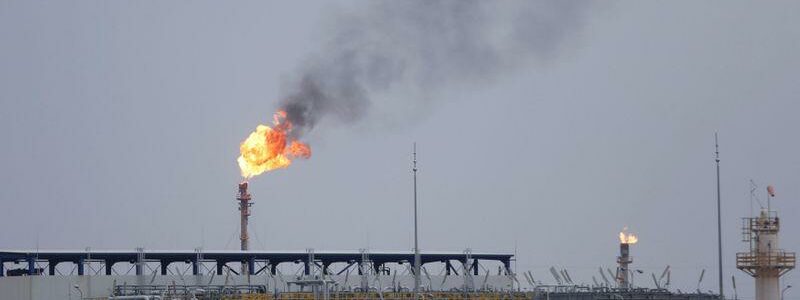
Oil falls on renewed lockdowns, stronger dollar
LONDON (Reuters) – Brent crude oil prices fell as much as $1 per barrel on Monday, hit by renewed concerns about global fuel demand amid tough coronavirus lockdowns across the globe, as well as a stronger U.S. dollar.
Brent was down 80 cents, or 1.4%, at $55.19 a barrel at 1010 GMT, after falling $1 to a session low of $54.99 earlier.
U.S. West Texas Intermediate (WTI) slipped 49 cents, or almost 1%, to $51.75 a barrel.
“The renewed concerns about demand due to very high numbers of new corona cases and further mobility restrictions, plus the stronger U.S. dollar, are generating selling pressure,” Commerzbank analyst Eugen Weinberg said.
Most of Europe is now under the strictest restrictions, according to the Oxford stringency index, which tracks measures such as travel bans and school and workplace closures.
Mainland China saw its biggest daily increase in virus infections in more than five months, authorities said on Monday, as new infections rose in Hebei, which surrounds the capital, Beijing.
Shijiazhuang, the provincial capital and epicentre of the new outbreak, is in lockdown, with people and vehicles barred from leaving, as authorities seek to rein in the spread.
For a graphic on New curbs put a brake on traffic in Shijiazhuang:
A stronger dollar, supported by hopes for more stimulus to boost the world’s largest economy, also weighed on oil prices.
Oil is usually priced in dollars, so a stronger greenback makes crude more expensive for buyers with other currencies.
Brent and WTI rose almost 8% last week, supported by Saudi Arabia’s pledge for a voluntary oil output cut of 1 million barrels per day (bpd) in February and March as part of a deal for most OPEC+ producers to hold production steady.
The Saudi cut is expected to bring the oil market into deficit for most of 2021 despite lockdowns, analysts said.
Tougher containment measures introduced by European nations were concerning for fuel demand, JBC Energy Research said on Monday, but added: “Our projections suggest that this latest Saudi production cut should be enough to keep crude fundamentals broadly solid.”
Source: Read Full Article